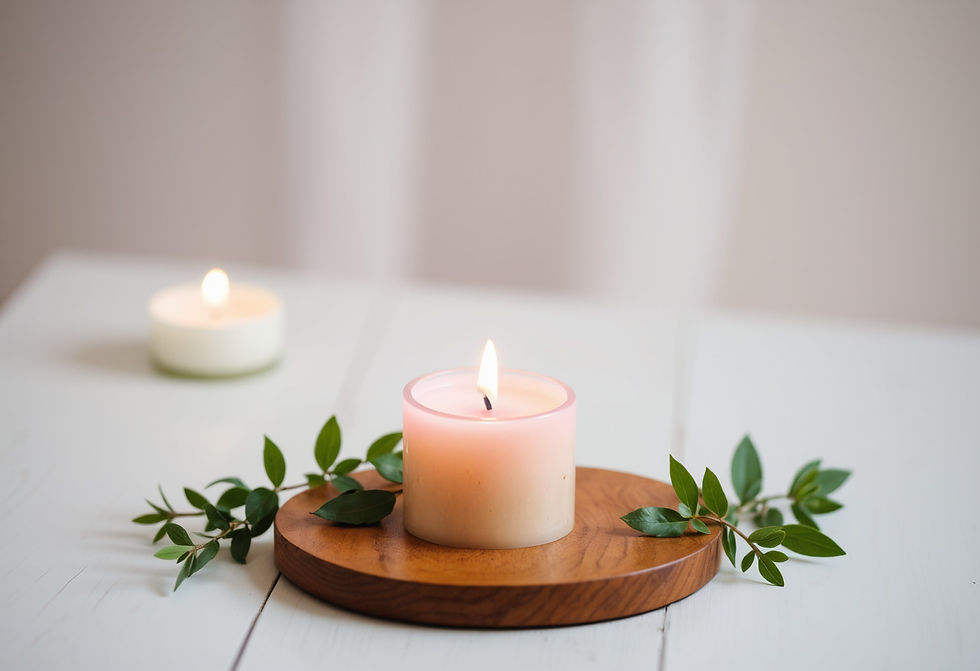Bridging Psychology and Intuition: How Tarot and Oracles Enhance Self-Reflection
- Nicole Ardin
- Mar 27, 2025
- 3 min read
Updated: May 30, 2025
As a psychosocial counselor and positive psychology coach, my work is deeply rooted in evidence-based practices. I rely on structured methods, research-backed theories, and psychological frameworks to guide individuals toward self-awareness and growth. Yet, over time, I’ve come to recognize that rationality alone doesn’t always lead to clarity. Some of the most profound insights arise when we allow space for intuition.
For me, tarot and oracle cards serve as tools to access this deeper wisdom. They don’t predict the future, nor do they replace analytical thinking—but they do help me break free from rigid thought patterns and engage with my subconscious in a way that purely logical reasoning sometimes cannot.
Intuition: A Missing Piece in Self-Reflection
Psychology acknowledges that human decision-making is not purely rational. Our minds are shaped by emotions, unconscious biases, and ingrained narratives. While analysis and structured methods are powerful, they can also become limiting when we overthink or get stuck in the same loops of reasoning.
Intuitive tools like tarot offer a different way of processing information. The symbols and archetypes act as a mirror, reflecting inner conflicts, hidden fears, or overlooked opportunities. When used intentionally, they encourage introspection in the same way that journaling, free association, or guided imagery do. They create space for new perspectives and allow us to connect with thoughts and emotions that may not surface through rational analysis alone.

How I Use Tarot and Oracle Cards in My Own Process
Whenever I feel trapped in analysis paralysis—whether in a professional decision, a creative block, or a personal challenge—I turn to tarot or oracle cards as a form of reflective practice. I shuffle, focus on a question, and draw a card. The imagery, words, and symbols often highlight something I hadn’t consciously acknowledged but instinctively knew.
For instance, when faced with a major career decision, I once pulled The Fool—a card symbolizing fresh starts and stepping into the unknown. It didn’t dictate my choice, but it did prompt me to ask: Am I hesitating out of genuine concern, or am I letting fear hold me back? This shift in perspective helped me move forward with greater confidence.
The Stigma Around Intuitive Tools
Despite its potential for self-reflection and personal growth, Tarot and similar practices are often burdened with persistent clichés. Particularly in professional and scientific contexts, there is a common concern about not being taken seriously. Given how Tarot is portrayed in films, books, and pop culture—supernatural, fateful, or even manipulative—this hesitation is understandable. Many professionals deliberately distance themselves from anything that sounds “esoteric” to avoid risking their credibility.
I see things a little differently. For over 20 years, I have followed a nature-based spirituality, incorporating self-reflection and rituals into my personal practice. Over time, I have come to realize that science and intuition are not mutually exclusive—on the contrary, they can complement each other beautifully in many situations.
Dismissing intuition as irrational or unscientific overlooks a fundamental aspect of human cognition. Carl Jung extensively studied archetypes and the unconscious as key influences on our thinking. Modern neuroscience confirms that our brain processes far more information than we are consciously aware of.
Intuition is not “hocus pocus”—it is based on experience, pattern recognition, and unconscious information processing. Science and intuition are not opposing forces but rather two sides of the same coin: while one relies on measurable facts, the other helps uncover hidden connections. And that is precisely where its strength lies.
The Psychological Perspective
From a psychological standpoint, tarot and oracle cards align with established counselling and therapeutic techniques. They function similarly to projective methods like free-writing, active imagination, or even the Rorschach inkblot test—tools designed to bypass the analytical mind and tap into deeper thought processes.
Positive Psychology also emphasizes self-reflection, strengths-based growth, and emotional resilience. If an intuitive tool like tarot helps an individual reframe a challenge, identify a personal strength, or gain clarity on a situation, why not use it? The goal is not to replace critical thinking but to expand the ways we engage with our inner world.
Conclusion
Integrating intuitive tools into my personal and professional development has deepened my self-awareness and enriched my decision-making process. These tools do not replace evidence-based psychological practices, but they add another dimension to self-reflection—one that values intuition as much as intellect.
For those hesitant to explore this space, I invite you to approach it with curiosity rather than fear. In a world that often prioritizes logic over inner knowing, sometimes the most profound insights come from the quiet wisdom within.




Comments